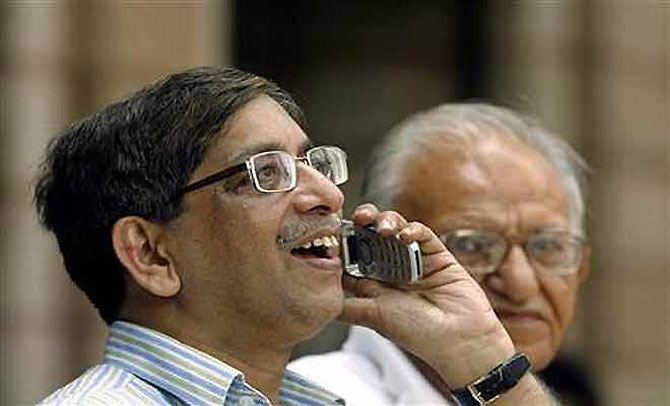
Though analysts suggest that there are downside risks to economy, by announcing/advancing general elections, markets would be able to look beyond uncertainty.
In two out of past three occasions, the Bombay Stock Exchange (BSE) S&P BSE Sensex has recorded a gain of over 50 per cent during twelve-month period before the Lok Sabha elections.
Except the last General Elections held in 2009, the benchmark index had surged 61% in 1999 and a whopping 93 per cent in 2004 during one-year prior to elections, data compiled by BS Research Bureau shows.
Five stocks from the BSE-30 Sensex companies, Tata Motors, Mahindra and Mahindra, Hero MotoCorp, Hindalco Industries, Larsen and Toubro and Sun Pharmaceutical Industries appreciated more than 100 per cent in both these years.
However, in the year the market did not rally before the elections, it rallied after the elections! In 2009, while Sensex declined 33 per cent before elections, it rallied 61 per cent in the next one-year after the new government took charge.
Click on NEXT for more...
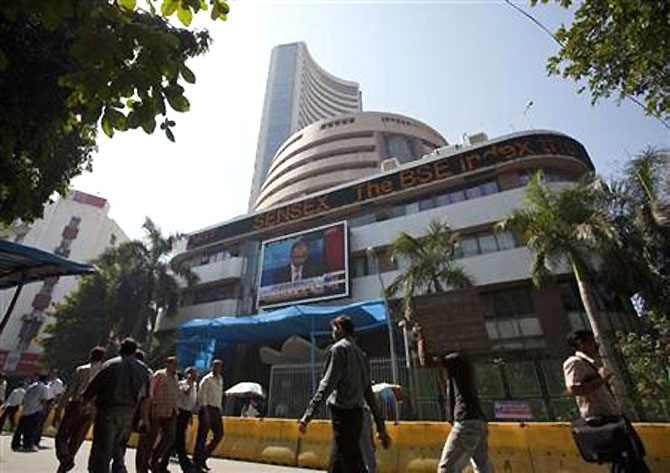
Best rally
Markets witnessed its best-ever post-election rally in history in May 2009 with the S&P BSE Sensex rallying over 2,110 points, or 17%, on the first trading day after the announcement of the Lok Sabha election results.
The foreign institutional investors (FIIs) have pumped in an investment of $82.2 billion, or Rs 401,195 crore, in Indian stocks since the last elections in May 2009 till date. In past two elections, they pumped in $16 billion (Rs 72,486 crore) between 1999 and 2004 and $29 billion (Rs 120,319 crore) between 2004 and 2009.
However, rising concerns on the rupee and its impact on the overall macros, especially the current account deficit has seen them withdraw Rs 22,639 crore ($3.70 billion) from the Indian markets since June this year to till date.
“Foreign investors remain cautious of the domestic political environment in the lead up to the May 2014 General Election.
There are also justifiable concerns about the quality of corporate governance, financial transparency and management accountability across many sectors of the Indian economy,” pointed out Richard Gibbs, global head of economics, Macquarie Research.
Click on NEXT for more...
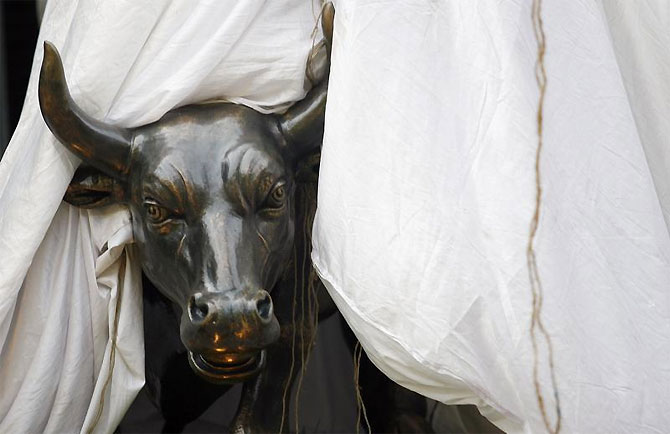
Will anything change now?
Analysts have a mixed view on how the Indian equity markets and the overall macros are likely to pan out given the slowdown in the economy and spike in crude oil prices.
“On balance, India faces a difficult economic and policy making environment in the lead up to the May 2014 General Election. By announcing/advancing the General Election markets would be able to look beyond the volatility and uncertainty of the election campaign,” Gibbs said.
“Moreover, the expected protracted delay of much-needed structural reform measures due to the forthcoming General Election would be shortened and this would likely have a positive impact on business confidence, said analyst,” he adds.
On the other hand, Richard Iley, chief Asia economist at BNP Paribas suggests that there are downside risks to the Indian economy.
“India’s parliament remains toxically dysfunctional with little, if any, business conducted. And, with next year’s general election looming ever nearer, the government’s willingness to instigate a politically unpopular fiscal tightening is close to nil. And with RBI set to sustain, even extend, recent monetary tightening, we now expect the palpable downside risks facing the Indian economy to largely crystallise over the next six – nine months. We accordingly now target GDP growth of just 3.7% in FY2014 (previously 5.2%),” he says.
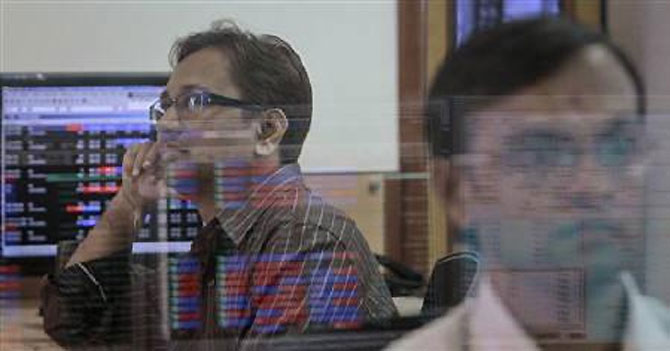
Strategy
So, what should your strategy be now? Is it a good time to take the plunge or would the next few months give an opportunity to buy stocks cheaper?
While most analysts agree that the markets will continue to sway between hope and despair, investors should brace up for volatility and invest selectively.
“We expect the index to remain in the range of 18,000-19,000 (Sensex) for the rest of 2013, with only a handful of stocks participating in any possible marginal recovery in the broader indices. We maintain our target in the range of 25,000 to 27,000 (Sensex) for the December end 2014 as we expect one of the national parties to win and get a majority in Parliament. This would enable the formation of a stable government and implementation of pending reform measures. This is also expected to give a sentimental boost to the markets,” said G Chokkalingam, executive director and chief investment officer, Centrum Wealth Management.
“Long-term investors who have appetite to take another 5 to 10 per cent risk to their portfolio in next six months and whose equity exposure is less than 30 per cent of total wealth may remain invested in quality stocks,” he adds.
Click on NEXT for more...
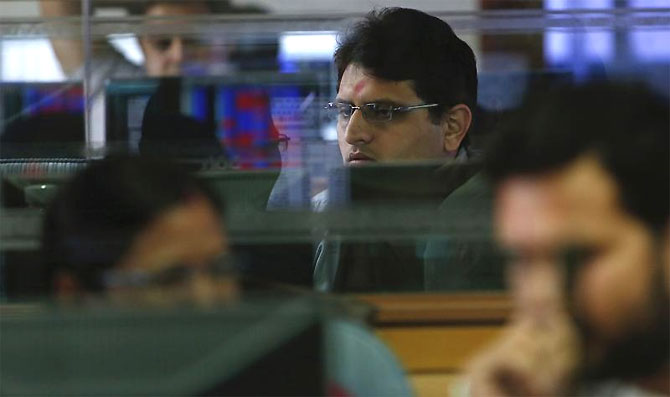
Tata Motors, Lupin, Zee Entertainment, Punjab National Bank, Motherson Sumi, Tata Global Beverages, United Phosphorous, Oriental Bank of Commerce, Bajaj Corp and Alembic Pharma are a few stocks that SMC Global suggests for a period of one year with 16 – 34% upside potential.
Bhuvnesh Singh, managing director and head of research for India at Barclays believes that financial stocks are not fully reflecting the impact of lower growth. “There could be some tactical opportunities in autos (Tata Motors) and materials (NMDC). Given weak domestic economy and a weak currency, exporters/defensives remain our preferred play (IT Services, Pharmaceuticals and Energy),” he said.
Given the rupee-dollar equation, Tata Steel, Hindalco, TCS, Infosys, Wipro, Tech Mahindra, RIL, United Phosphorous, Tata Motors and Bharat Forge will be key prospective beneficiaries point out Abhay Laijawala and Abhishek Saraf of Deutsche Equities in a market strategy report.